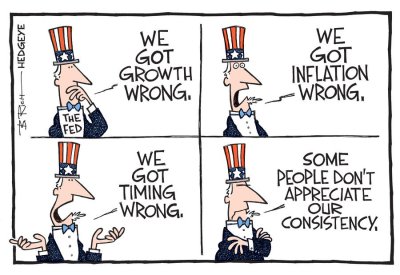Your model is consistent? So what! In the realm of science it ought to be considered of little or no value to simply make claims about the model and lose sight of reality. There is a difference between having evidence for some hypothesis and having evidence for the hypothesis relevant for a given purpose. The difference is important because scientific methods tend to be good at addressing hypotheses of a certain kind and not others: scientific methods come with particular applications built into them … The advantage of mathematical modelling is that its method of deriving a result is that of mathemtical prof: the conclusion is guaranteed to hold given the assumptions. However, the evidence generated in this way is valid only in abstract model worlds while we would like to evaluate hypotheses about what happens in economies in the real world … The upshot is that valid evidence does not seem to be enough. What we also need is to evaluate the relevance of the evidence in the context of a given purpose. Even if some people think that there has been a kind of empirical revolution in economics lately, I would still argue that empirical evidence only plays a minor role in economic theory, where models largely function as a substitute for empirical evidence.
Topics:
Lars Pålsson Syll considers the following as important: Economics
This could be interesting, too:
Lars Pålsson Syll writes Schuldenbremse bye bye
Lars Pålsson Syll writes What’s wrong with economics — a primer
Lars Pålsson Syll writes Krigskeynesianismens återkomst
Lars Pålsson Syll writes Finding Eigenvalues and Eigenvectors (student stuff)
Your model is consistent? So what!
In the realm of science it ought to be considered of little or no value to simply make claims about the model and lose sight of reality.
There is a difference between having evidence for some hypothesis and having evidence for the hypothesis relevant for a given purpose. The difference is important because scientific methods tend to be good at addressing hypotheses of a certain kind and not others: scientific methods come with particular applications built into them … The advantage of mathematical modelling is that its method of deriving a result is that of mathemtical prof: the conclusion is guaranteed to hold given the assumptions. However, the evidence generated in this way is valid only in abstract model worlds while we would like to evaluate hypotheses about what happens in economies in the real world … The upshot is that valid evidence does not seem to be enough. What we also need is to evaluate the relevance of the evidence in the context of a given purpose.
Even if some people think that there has been a kind of empirical revolution in economics lately, I would still argue that empirical evidence only plays a minor role in economic theory, where models largely function as a substitute for empirical evidence. The one-sided, almost religious, insistence on axiomatic-deductivist modeling as the only scientific activity worthy of pursuing in economics, still roosts the roost.
 But mainstream economists’ belief that theories and models being ‘consistent with’ data will somehow make the theories and models a success story, is nothing but an empty hope. Mere consistency with the facts is never sufficient to prove models or theories true. The fact that US presently has a president named Donald Trump, is ‘consistent with’ US being a democracy — but that doesn’t in any way whatsoever explain why a witless clown came to be elected to a post previously held by people like George Washington and Thomas Jefferson.
But mainstream economists’ belief that theories and models being ‘consistent with’ data will somehow make the theories and models a success story, is nothing but an empty hope. Mere consistency with the facts is never sufficient to prove models or theories true. The fact that US presently has a president named Donald Trump, is ‘consistent with’ US being a democracy — but that doesn’t in any way whatsoever explain why a witless clown came to be elected to a post previously held by people like George Washington and Thomas Jefferson.
Theories and models are always ‘under-determined’ by facts. So a good way to help us choose between different ‘consistent’ theories and models is to actually look at what happens out there in the economy and why it happens.
History and good ordinary social science can also help us. And if we’re not to busy doing the things we do, but once in a while take a brake and do some methodological reflection on why we do what we do — well, that takes us a long way too.
